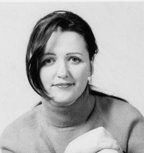The two words “breast cancer” shake all women to the core – more so than any other disease, even though heart disease takes far more lives than breast cancer.
Try your hand at these 24 true/false questions about breast cancer (mostly). The answer key is at the end. No peeking now until you answer all the questions. I’m watching you!
1. In 1970, 1 in 20 women were diagnosed with breast cancer; today, 1 in 8 women are diagnosed with breast cancer. T or F?
2. According to Dr. John McDougall, it takes 100 days for one breast cancer cell to divide into two cells; about 6 years for one breast cancer cell to divide into 1 million cells, which is only as big as the tip of a pencil and undetectable; and 10 years to multiply into 1 billion cells, the size of an eraser on a pencil. T or F?
3. There is no such thing as early detection of breast cancer. T or F?
4. Only 3% to 5% of breast cancer can be attributed to genes. T or F?
5. According to three major studies, hormone replacement therapy (HRT) causes increase of breast cancer, strokes, heart problems, and clots in lungs and legs. T or F?
6. The incidents of breast cancer decreased after the use of HRT decreased. T or F?
7. Clinical trials show that the extract from the plant, black cohosh, is just as effective as HRT (70 %) in reducing hot flashes without the dangerous side effects of HRT. T or F?
8. A plant-based diet leads to gentler menopause. T or F?
9. Early menses (before 12) and late menopause (after 55) increase risk of breast cancer. T or F?
10. There is a high correlation between eating animal products and early menses and late menopause. T or F?
11. Walking 4 hours per week decreases breast cancer risk by 33%. T or F?
12. Fiber found in whole plants, not fiber by itself, reduces breast cancer risk. T or F?
13. Elevated cholesterol increases risk of breast cancer. T or F?
14. Increased body fat increases risk of breast cancer. T or F?
15. Increased dietary fat increases risk of breast cancer. T or F?
16. When diagnosed with breast cancer, women with near ideal body weight have greater chance for survival than women with higher body weights. T or F?
17. Breast cancer risk is 400% higher in the U.S. than it is in Japan. T or F?
18. The death rate from breast cancer is 5x higher in the U.S. than it is in rural China. T or F?
19. Increased estrogen levels significantly increase risk of breast cancer. T or F?
20. Estrogen levels significantly increase from eating the typical American diet, high in fat, animal protein, and low in dietary fiber. T or F?
21. According to T. Colin Campbell in “The China Study,” breast cancer can mostly be prevented by eating a plant-based diet and avoiding dietary fats and animal protein. T or F?
22. According to Dr. Campbell, the people around the world who eat the most animal protein have the most cancer, heart disease, and diabetes. T or F?
23. Okay, guys, you aren’t off the hook. In 2001 Harvard review of research, there is a significant correlation between prostate cancer and dairy products. T or F?
24. In the U.S., 1 in 10 men die from prostate cancer; in China, 1 in 100,000 die from prostate cancer. T or F?
Okay, you can now peek at the answer key and find out how much you know about your body and breast cancer.
Every statement is absolutely true! Great work, my friend!
Dr. Leslie Van Romer is a health motivational speaker, writer, and lifestyle coach. Visit http://www.DrLeslieVanRomer.com for more inspiration.
Work at Home Freelance
In Celebration of Older Women
Pro Aging
Beautiful Forever
Living With Food Related Diseases
Lifestyle and Wellness
Wednesday, February 06, 2008
Breast Cancer, Prevention, and Life After Hormone Replacement Therapy
Subscribe to:
Post Comments (Atom)



No comments:
Post a Comment